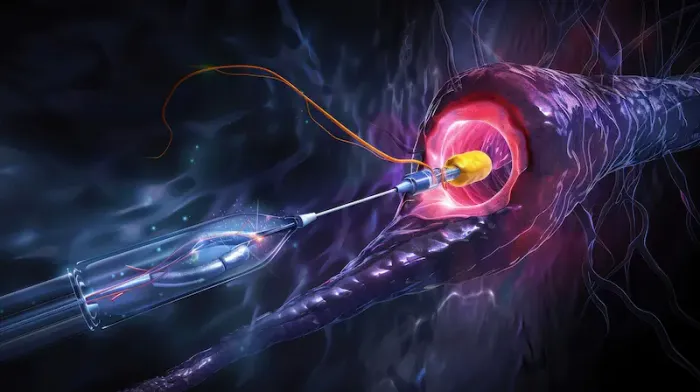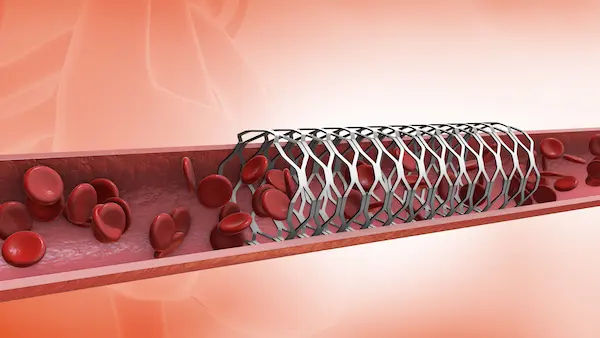Angioplasty How Long Does It Last?
Angioplasty can relieve chest pain and restore blood flow, but how long do its effects last? Learn what influences its longevity and how to make it last longer.

Written by Dr. J T Hema Pratima
Reviewed by Dr. Rohinipriyanka Pondugula MBBS
Last updated on 13th Jan, 2026

Introduction
If you or a loved one has undergone angioplasty or is considering it, you might wonder—how long does it last? Angioplasty is a common procedure to open blocked or narrowed arteries, usually in the heart, to improve blood flow. While it can provide significant relief, it’s important to understand its longevity and how to maintain its benefits.
What Is Angioplasty?
Angioplasty is a minimally invasive procedure where a doctor inserts a small balloon-tipped catheter into a blocked artery. The balloon is inflated to widen the artery, and often, a stent (a tiny mesh tube) is placed to keep the artery open. This helps restore normal blood flow, reducing chest pain (angina) and lowering the risk of a heart attack.
Consult Top Specialists for Personalised Heart Health Advice
How Long Does an Angioplasty Last?
The effects of angioplasty can vary from person to person. Here’s what you should know:
1. Immediate Relief
Right after angioplasty, many patients experience a noticeable improvement in symptoms.
Many patients feel better right after the procedure, with reduced chest pain and improved energy.
The stent remains in place permanently to keep the artery open.
2. Long-Term Success
While angioplasty provides prompt relief, its long-term success depends on several factors.
Bare-Metal Stents (BMS): These may last 5-10 years, but there’s a higher chance of the artery narrowing again (restenosis).
Drug-Eluting Stents (DES): These release medication to prevent scar tissue buildup and can last 10-15 years or longer.
Balloon Angioplasty (Without Stent): The artery may narrow again within 6 months in some cases.
However, angioplasty is not a permanent cure for heart disease. The underlying condition like plaque buildup still exists, so lifestyle changes and medications are crucial for long-term success.
Factors That Affect How Long Angioplasty Lasts
Several factors influence the durability of angioplasty:
1. Lifestyle Choices
Your daily habits play a major role in determining how long the benefits of angioplasty will last.
Smoking: Speeds up artery re-narrowing.
Poor Diet: High cholesterol and fatty foods can cause new blockages.
Lack of Exercise: Increases the risk of plaque buildup.
2. Medication Adherence
Following your prescribed medication regimen is essential after angioplasty.
Blood thinners like aspirin or clopidogrel prevent clots around the stent.
Cholesterol-lowering drugs (statins) help keep arteries clear.
Skipping medications can lead to complications.
3. Underlying Health Conditions
Diabetes, high blood pressure, or obesity can increase the risk of future blockages.
How to Make Angioplasty Last Longer
To maximise the benefits of angioplasty, follow these steps:
1. Take Prescribed Medications
Blood thinners, such as aspirin or clopidogrel, help prevent clots around the stent, while statins lower cholesterol levels and reduce the risk of further blockages. These medications play a key role in maintaining artery health, and stopping them without a doctor’s guidance can lead to serious complications.
2. Adopt a Heart-Healthy Diet
A balanced diet rich in fruits, vegetables, whole grains, and lean proteins helps support overall cardiovascular health. Limiting processed foods, excess salt, trans fats, and sugary snacks can prevent new plaque formation and keep your arteries clear.
3. Exercise Regularly
Most individuals can benefit from 30 minutes of moderate-intensity exercise—like walking, swimming, or cycling—on most days of the week. However, it’s important to consult your doctor before starting or intensifying any fitness routine after angioplasty.
4. Quit Smoking & Limit Alcohol
Smoking damages the blood vessels and accelerates the development of arterial blockages, while excessive alcohol can raise blood pressure and add unnecessary strain on your heart.
5. Manage Stress & Monitor Health
Chronic stress can negatively affect heart function, so incorporating stress-reduction techniques such as yoga, meditation, or deep breathing exercises can be beneficial. Additionally, regular check-ups to monitor blood pressure, cholesterol levels, and blood sugar help detect potential problems early and keep your heart in check.
When to Seek Medical Help
Even after angioplasty, watch for warning signs like:
Chest pain or discomfort similar to pre-angioplasty symptoms.
Shortness of breath, dizziness, or fatigue.
Swelling in legs or sudden weight gain could indicate heart issues.
If you experience these, contact your doctor immediately.
Can You Need Another Angioplasty?
Yes, in some cases:
If new blockages develop in other arteries.
If the stent gets clogged again which is rare but possible.
Regular follow-ups with a cardiologist help monitor heart health and prevent complications.
Conclusion
Angioplasty can provide long-lasting relief, but its success depends on lifestyle changes and proper medical care. By following a heart-healthy routine, taking prescribed medications, and staying in touch with your doctor, you can enjoy a better quality of life for years to come.
If you have concerns about your heart health or need a consultation, Apollo 24|7 offers expert cardiology care. You can book an appointment or schedule tests easily online.
Consult Top Cardiologists
Consult Top Specialists for Personalised Heart Health Advice
Dr. Srinivasa Prasad B V
Cardiologist
23 Years • MBBS, MD, DM (Cardiology). Fellowship in Interventional Cardiology (post DM), FSCAI Structural Heart Interventions Training (Buffalo University, New York)
Bengaluru
Apollo Hospitals Jayanagar, Bengaluru

Dr. Arulnidhi Ayyanathan
Cardiologist
12 Years • MBBS, MRCP, AB, MBA
Chennai
Apollo Hospitals Greams Road, Chennai
Dr.bino John Sahayo J
Cardiologist
18 Years • Fellowship in Intravascular Imaging, DNB (Cardio),DM (Cardio), DNB (Gen.Med),MD (Gen.Med),MBBS
Chennai
Apollo Speciality Hospitals OMR, Chennai

Dr. Prashant Adeppa
Cardiologist
10 Years • MBBS, MD General Medicine, DM Cardiology (Armed Forces Medical College)
Bengaluru
Apollo Hospitals Bannerghatta Road, Bengaluru

Dr. Vignesh Thanikgaivasan
Cardiologist
11 Years • MBBS, MD (Gen Med), DM (Cardiology) AFAPSIC, FIMSA, FSCAI
Chennai
Apollo Hospitals Greams Road, Chennai
(100+ Patients)
Consult Top Cardiologists
Dr. Srinivasa Prasad B V
Cardiologist
23 Years • MBBS, MD, DM (Cardiology). Fellowship in Interventional Cardiology (post DM), FSCAI Structural Heart Interventions Training (Buffalo University, New York)
Bengaluru
Apollo Hospitals Jayanagar, Bengaluru

Dr. Arulnidhi Ayyanathan
Cardiologist
12 Years • MBBS, MRCP, AB, MBA
Chennai
Apollo Hospitals Greams Road, Chennai
Dr.bino John Sahayo J
Cardiologist
18 Years • Fellowship in Intravascular Imaging, DNB (Cardio),DM (Cardio), DNB (Gen.Med),MD (Gen.Med),MBBS
Chennai
Apollo Speciality Hospitals OMR, Chennai

Dr. Prashant Adeppa
Cardiologist
10 Years • MBBS, MD General Medicine, DM Cardiology (Armed Forces Medical College)
Bengaluru
Apollo Hospitals Bannerghatta Road, Bengaluru

Dr. Vignesh Thanikgaivasan
Cardiologist
11 Years • MBBS, MD (Gen Med), DM (Cardiology) AFAPSIC, FIMSA, FSCAI
Chennai
Apollo Hospitals Greams Road, Chennai
(100+ Patients)


.webp)
_1.webp)
